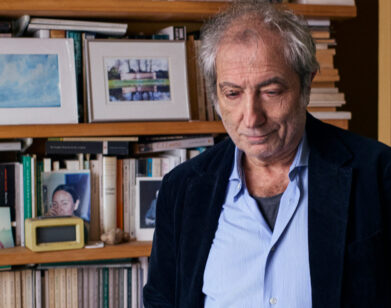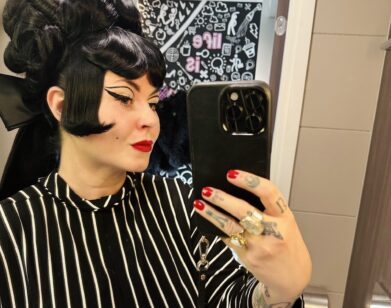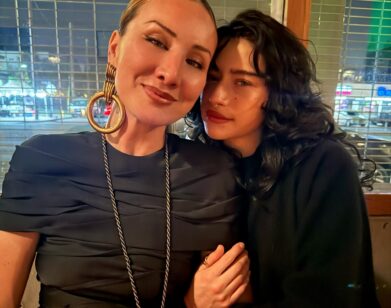Translation by Philip Gabriel
Haruki Murakami on Cold Beer, Nothingness, and F. Scott Fitzgerald
It’s hard to think of a living writer who has a more adoring international following than Haruki Murakami. Examine any bookshelf of a serious reader and you’re bound to find a copy of Norwegian Wood, The Wind-Up Bird Chronicle, 1Q84, or Kafka on the Shore. Experimental postmodernists idolize him, as do sci-fi fanatics, philosophers, uncloseted romantics, hippies, Kafkaian realists, and basically anyone else who allows themselves to slip a few pages into the 73-year-old Japanese master’s ethereal yet visceral fictional universes. No matter how beloved Murakami is, the man himself remains to his fanbase something of a mystery, beyond his admitted obsessions with baseball, running, and jazz. Murakami’s latest book, Novelist as a Vocation, sheds some light on the clever, ever-turning brain behind the novels, offering practical advice to aspiring writers from his decades of dreaming up hidden worlds. Above all, it is an ode to the day-to-day rigors of stoking the imagination. Ever greedy for more answers, we asked the novelist about magic, happiness, and time travel.
———
When you’re writing, do you ever get so lost in the world you’ve created that it’s hard to come out of it?
HARUKI MURAKAMI: Usually as I’m writing a novel, I’m completely immersed in that world. But once I finish the day’s work I go back to living normally in the ordinary world. I do the ironing, take the subway, and stop by used record shops. I’ve never had the experience of not being able to emerge from the world of the novel—being married, that would make things complicated.
———
How do your stories first come to you? What has been the most surprising spark for inspiration?
MURAKAMI: I’ve hardly ever experienced inspiration. I merely write down what comes into my mind at the moment. “What’s coming next?” I wonder, and the story develops from there naturally. Just ideas that come to me. I would like to experience inspiration sometime, like a light bulb coming on over my head.
———
You often write your novels abroad. What has been your favorite foreign locale for writing?
MURAKAMI: When I was writing a novel on an island in Greece, I could see a flock of sheep right outside the window and I wrote the novel every day looking at them. It’s not like the sheep helped in any special way, but they might have encouraged me. The novel I was writing then was Norwegian Wood. Not a single sheep in the story.
———
How important is the classification of “Japanese writer” to you?
MURAKAMI: I write novels in Japanese, so I guess that’s why I’m called a “Japanese writer.” It’s easiest for me to write in Japanese, but it doesn’t mean anything beyond that. I do, though, like being in Japan because of all the delicious soba buckwheat noodle shops.
———
Which music and films were most inspiring to you as a young writer?
MURAKAMI: Back when I was young, I watched all kinds of movies, listened to all kinds of music, and all of that got jumbled together in my head and became a kind of education (or something like it.) So I can’t just pick one. What’s more important for me is how it’s all mixed together.
———
Is there anything new that is currently inspiring you?
MURAKAMI: I’m sorry, but I have to say that I have almost no interest in new things. In all the years I’ve lived, no singer has ever surpassed Billie Holliday, and no musician has ever played tenor saxophone better than Stan Getz.
———
If you could travel through time, would you rather go into the past or into the future?
MURAKAMI: I’d like to go back and hear Glenn Gould’s final concert. And hear Clifford Brown live. I’d love to hear a gig where Charlie Parker was playing, but I’m afraid I might expect too much and feel let down.
———
In Novelist as a Vocation, you often describe the magic involved in writing a novel. Where else do you find magic in the world?
MURAKAMI: A baseball game—the opening game of the season. The white, spotless uniforms of the players. That first cold beer after finishing a full marathon. Deep-fried oysters, still sizzling. A dining car in a train, the starched white tablecloth, a single red rose on the table. Blue Note Records label from the 1950s. Kenny Burrell’s crisp backing.
———
What is your biggest fear?
MURAKAMI: That after I die it won’t just be mu—nothingness.
———
You write that you’ve lived an “ordinary, nondescript” life and don’t have many writer friends. (Or, as you mentioned, you might be destroying the romantic myth of the writer as having a big, debauched Hemingway life.) Have you purposely tried to keep a life apart? Is there any wild adventure you still want to try?
MURAKAMI: I only do things that interest me, and never anything that doesn’t. My ultimate goal in life is to read books I like, listen to music I enjoy, play with my cats, drink some semi-decent red wine, and watch a live baseball game on TV. And run one full marathon a year and travel occasionally. I don’t shoot lions, don’t catch marlins. Living itself is adventure enough.
———
What did your years running a jazz bar prepare you for in terms of the literary world?
MURAKAMI: When I was running the bar, I felt like I’d already done a lifetime’s worth of talking with other people. (It’s a service job, after all.) When I closed the bar I thought, “I want to live the rest of my life without talking.” The funny thing is, customers from back then tell me I didn’t talk much.
———
Are writers trickier characters than musicians?
MURAKAMI: I try my best to be a decent person. But one thing is for certain: People who are too decent can’t write novels. As for what’s going on in musicians’ heads, I have no idea.
———
Do you think humanity has any chance of righting itself?
MURAKAMI: I want to believe so. Since it’s also the reason that stories exist.
———
What is the best advice you were ever given?
MURAKAMI: If you want to say something different from other people, use language that’s different from other people. I’ve lost the exact reference, and it’s not a verbatim quotation, but these are F. Scott Fitzgerald’s words. I read this when I was young, and it’s remained etched in my mind. I think it’s helped me a lot as a writer.
———
Can a novel be misunderstood? Which of your novels have had a reaction that has surprised you and what was it?
MURAKAMI: I really believe that the sum of all misunderstandings is what makes up true understanding. So, I don’t get upset when people misunderstand my work. Not being afraid of people misunderstanding my works, and not expecting them to be fully understood—that’s the trick to writing novels over a long time. No kidding.
———
Who is the first person you talk to about a new idea for a story?
MURAKAMI: I don’t talk to anyone. I think about it for a long time by myself. That’s the kind of personality I’ve always had.
———
Is there a subject you’d love to write on, but you don’t feel ready to yet?
MURAKAMI: Since I was young, I’ve thought I’d like to write a hardboiled mystery someday, but it was too hard to figure out a plot, so I never did. I’m not good at working out a plotline. “Who was the criminal, again?” and all that. I think I’d get confused halfway through.
———
Do you have art in your home?
MURAKAMI: Buying paintings is my sole extravagance. I love buying paintings I enjoy. For me it’s less a feeling of owning them and more like I’ve been entrusted with them. I’ve been choosing the works of relatively younger Japanese artists.
———
Do you remember the tallest tree you’ve climbed?
MURAKAMI: I have a terrible fear of heights. The tallest tree? I really can’t recall.
———
Where are you happiest?
MURAKAMI: That would have to be at the finish line of a full marathon. When I know I don’t have to run anymore.







